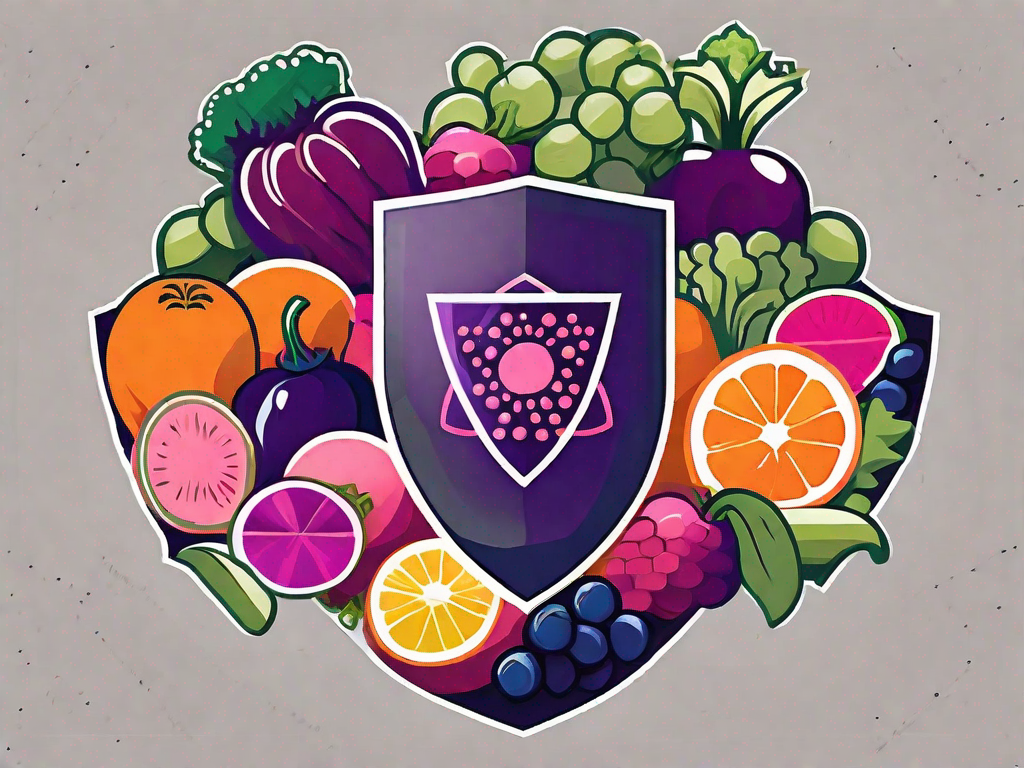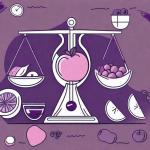Highlighting the pivotal role of vitamins in cancer prevention, this article delves into how certain vitamins bolster our body’s defenses against cancer. Vitamins, acting as potent antioxidants, neutralize harmful free radicals, reducing cell damage and cancer risk. Key vitamins like D, E, A, and C are spotlighted for their specific benefits in reducing the risk of various cancers through mechanisms like regulating cell growth, reducing inflammation, and enhancing immune function. The article also emphasizes the importance of vitamin K and B vitamins in supporting blood clotting, bone health, and DNA repair, contributing further to cancer prevention. Debunking myths around vitamin supplementation, it advises against high-dose supplements, which could increase cancer risk, underscoring that vitamins should complement, not replace, a healthy diet. It encourages incorporating vitamin-rich foods into daily meals and consulting healthcare professionals for personalized supplementation advice, alongside maintaining a balanced lifestyle for optimal health and cancer prevention.
As we strive for optimal health and well-being, the role of vitamins in preventing cancer cannot be overstated. Research has shown that certain vitamins play a vital role in protecting our bodies from the development and progression of cancer. Understanding this link can empower us to make informed choices about our diet and supplementation. In this article, we will explore the impact of vitamins in cancer prevention, understanding how they provide essential nourishment and protection to our cells.
The Link between Vitamins and Cancer Prevention
When it comes to preventing cancer, a well-fortified body is better equipped to defend against its onset. Vitamins act as powerful antioxidants, helping to neutralize harmful free radicals that can damage our cells. These free radicals, when left unchecked, may contribute to the development of cancer. By incorporating the right vitamins into our diet, we can give our bodies the nourishment it needs to stay strong and resilient.
Key Vitamins in Focus: Which Supplements Matter Most
While a varied and balanced diet can provide us with many essential vitamins, some individuals may benefit from targeted supplementation. When it comes to cancer prevention, specific vitamins take center stage. Vitamin D, often referred to as the sunshine vitamin, has shown promising effects in reducing the risk of several types of cancer, including breast, colon, and prostate cancer.
Similarly, vitamin E, when consumed in appropriate amounts, has been linked to a decreased risk of certain cancers, thanks to its ability to neutralize free radicals and protect our cells from oxidative stress. Finding the right balance of vitamin E supplementation is crucial, as excessive amounts may have adverse effects.
The Benefits of Vitamin A in Cancer Prevention
Vitamin A is a powerful player in the fight against cancer. This essential nutrient can be obtained through a variety of foods, including leafy greens, carrots, and liver. By incorporating these vitamin A-rich foods into our diet, we can bolster our bodies’ defense systems and reduce the likelihood of cancer development.
Vitamin A’s protective effects come from its ability to regulate cell growth and promote healthy tissue development. By maintaining the health of our skin, respiratory system, and digestive tract, vitamin A helps prevent cancerous transformations and keeps our cells functioning optimally.
Exploring the Impact of Vitamin C in Cancer Prevention
Vitamin C, also known as ascorbic acid, has long been associated with its immune-boosting properties. However, its role in preventing cancer goes beyond that. As a potent antioxidant, vitamin C scavenges harmful free radicals that can damage our DNA and promote cancer development.
Moreover, vitamin C supports our immune system, enhancing its ability to defend against cancer cells. It aids in the production of collagen, which is essential for maintaining the integrity of blood vessels, skin, and connective tissues. By incorporating vitamin C-rich foods such as citrus fruits, berries, and leafy greens into our diet, we can harness this potent nutrient’s cancer-fighting potential.
The Power of Vitamin D in Cancer Prevention
Vitamin D has garnered significant attention in recent years for its role in various aspects of our health. When it comes to cancer prevention, this sunshine vitamin shines brightly. Studies have indicated that vitamin D can help reduce the risk of certain cancers, including breast, colon, and prostate cancer.
Vitamin D is unique in that it can be synthesized by our bodies when exposed to sunlight. So, make sure to get some sun exposure daily, but always remember to protect your skin from excessive UV radiation. Additionally, vitamin D can also be obtained through dietary sources such as fatty fish, eggs, and fortified dairy products.
Finding the Right Vitamin E Balance for Cancer Prevention
Vitamin E is a fat-soluble antioxidant that plays a crucial role in protecting our cells from oxidative damage. However, finding the right balance is key. While vitamin E in appropriate amounts has shown promising effects in reducing the risk of certain cancers, excessive supplementation may have adverse effects.
It’s best to obtain vitamin E through a varied diet that includes nuts, seeds, and vegetable oils. By doing so, we can ensure that we are reaping the benefits of this vital nutrient while maintaining a healthy balance.
The Role of Vitamin K in Cancer Prevention
Vitamin K, often overlooked but equally important, has proven to play a significant role in cancer prevention. This vitamin contributes to proper blood clotting, bone health, and even supports the inhibition of cancer cell growth. By including dark leafy greens, cruciferous vegetables, and fermented foods in our diet, we can harness vitamin K’s potential to fight against cancer.
How B Vitamins Help Fight Cancer
B vitamins encompass a group of essential nutrients that are involved in various bodily functions. They contribute to DNA repair, cell growth, and metabolism – all essential for cancer prevention. Consuming a diet rich in B vitamins, including whole grains, legumes, and leafy greens, can help fortify our bodies’ natural defenses against cancerous transformations.
Debunking Myths: What Doesn’t Work in Vitamin Supplementation
With the abundance of information available, it’s essential to separate fact from fiction when it comes to vitamin supplementation for cancer prevention. While vitamins can play a crucial role, it’s important to note that they are not a cure-all. High-dose supplementation of certain vitamins may, in fact, increase the risk of cancer.
It’s also important to remember that vitamins are not a substitute for a healthy diet. While they can complement our nutritional intake, they are not meant to compensate for poor dietary choices. A well-rounded, varied diet and a healthy lifestyle remain the cornerstone of cancer prevention.
Incorporating Vitamins into Daily Life
Now that we understand how vitamins can contribute to cancer prevention, it’s time to put that knowledge into action. Start by incorporating vitamin-rich foods into your daily meals. Explore new recipes that incorporate leafy greens, colorful fruits, and vegetables.
If supplementation is needed, consult with a healthcare professional to determine the appropriate dosage. Remember, each person’s nutritional needs are unique, and personalized guidance can help ensure we achieve the right balance.
Additionally, follow a balanced lifestyle that includes regular exercise, stress management, and avoiding harmful habits such as smoking and excessive alcohol consumption. By combining these habits with a diet rich in vitamins, we can lay a solid foundation for cancer prevention.
Let us embrace the power of nourishment and make vitamins an integral part of our journey towards optimal health. Remember, every small step we take today can have a profound impact on our well-being tomorrow.






